Which Businesses and Industries Benefit the Most from Blogging?

One thing I'm frequently asked by my prospective clients is "how will I benefit from blogging?" Indeed, they have a few rightful concerns.
Blogging is global. Blogging has the potential audience of "everyone on the planet who reads your language." Sure, there's the occasionally censored stronghold like China's great firewall, but there are still literally billions of people in your potential audience.
As you can imagine, it's great for global companies to take advantage of that reach. Your brands like Disney, Coke, and Nestle. These companies have the ability not just to reach that population, but to take advantage of it. Sometimes in the business sense, and sometimes in the literal sense with the way Nestle acts sometimes.
Small businesses, though, worry. A small business doesn't always have a global reach. A small business might not be able to ship to Taiwan or Germany. Is blogging going to be worthwhile to them?
My answer is: yes. Blogging is valuable to nearly every company. There are very few companies that don't have the potential to benefit from blogging, and they're exceptions to most rules.
The Problem with Modern Blogging
There's one problem with modern blogging that we've all run into. It's what makes SEO so important. It's what makes social media, mailing lists, and other forms of marketing so important. What is it?
Too much content.
Recent statistics indicate that there are 4.4 million blog posts published on the internet every single day. That's an insane amount of content. Even if a tiny fraction of that is even in your industry, let alone in competition with you, it's still a huge draw on the accumulated time of the people of the world.
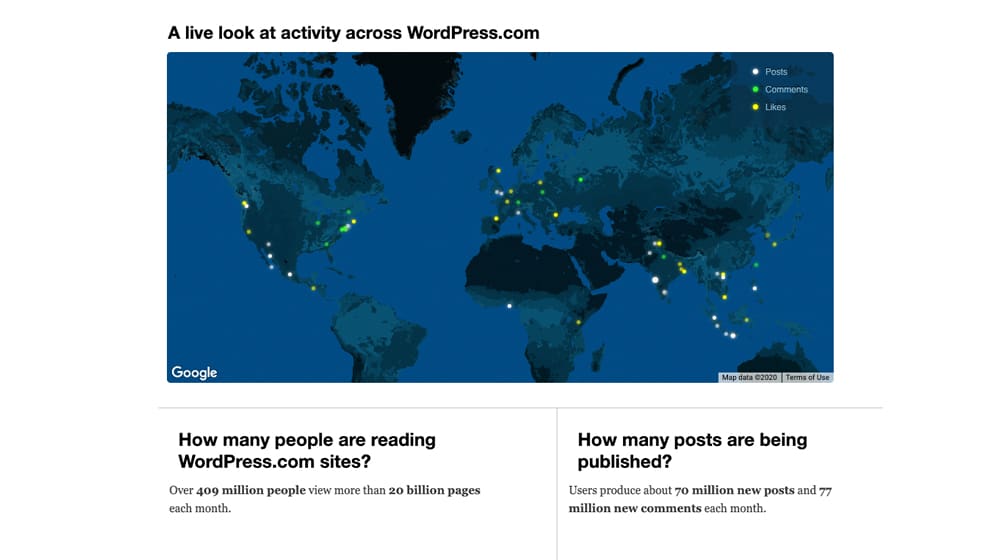
Writing and publishing blog posts of your own seems like a futile errand. It's like adding a single grain of sand to a beach, and hoping your audience can find that grain of sand and that it somehow sticks out.
SEO and marketing are just techniques to help you make that grain of sand stick out among thousands of others. Blogging (in general) and publishing a consistent flow of high-quality blog posts is about adding more grains of sand so the chance of people finding you are higher. You make your sand shinier, make it stand out, and put it on a pedestal.
Then again, so is everyone else.
Unfair Advantages
Indeed, some businesses are better positioned to take advantage of blogging than others. The question is, what businesses are those?
It might not be the businesses that you think.
Think about my examples up above. Have you ever read a blog post from Coke or Nestle? Coke's website doesn't even have a blog - just a few blog-like landing pages for their outreach and marketing efforts. Nestle does, but it's all self-serving, advertorial content. Just look at this and try to tell me it would even show up in a Google search, let alone attract readers who enjoy it.
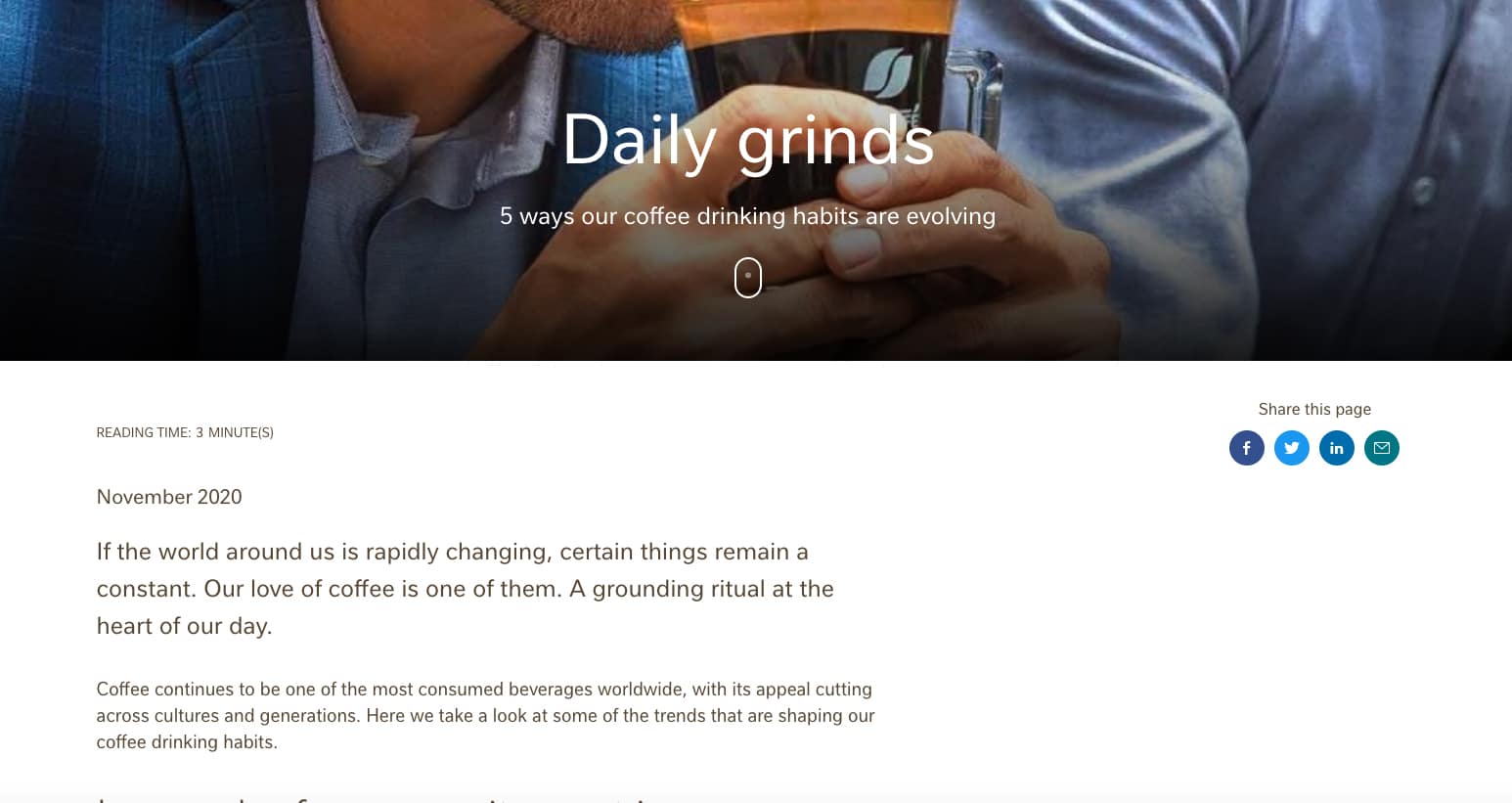
The truth is, huge megacorporations don't need blogging to succeed, so many of them don't even pursue it. Those who do are either bad at it, are too self-serving and overly-promotional, or use it for stuff unrelated to their brand itself, like charitable outreach and organizations they sponsor.
Which Industries Win
The best-positioned businesses to take advantage of blogging are small and mid-sized businesses with a global reach. A company that sells a piece of software, even if it's a small company of 10 people in an office in the Bay Area, can reach a global audience through blogging. They can sell their product anywhere; it's a digital download, they don't need to worry about customs or regional tax rates or shipping.
A step below those examples is the companies that provide global shipping on physical products. Etsy sellers are an example of this in a sense; you can order hand-made goods from all over the world and have them shipped to you, so long as the seller is willing to ship to your area.
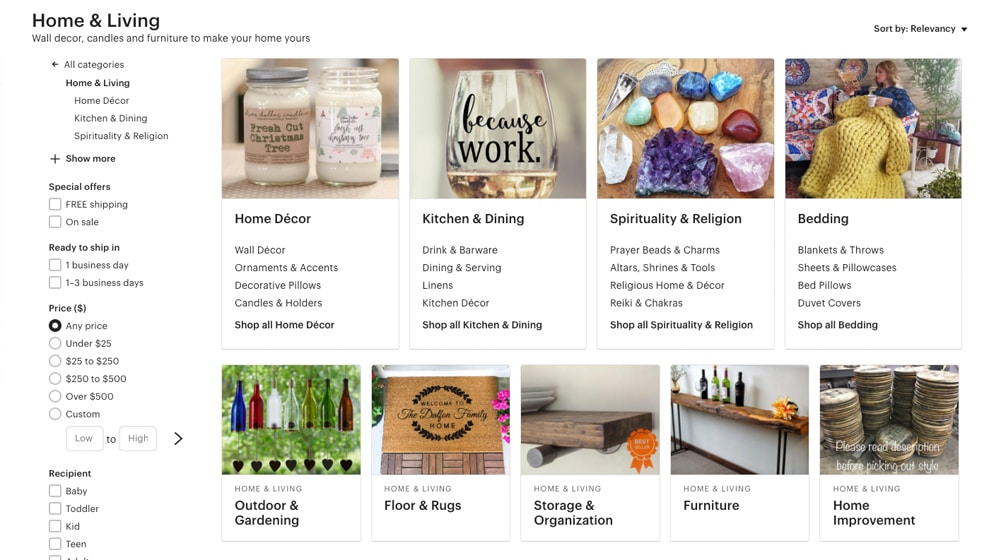
Companies that ship nationally but not globally are another notch down, but they can still make great use of blogging. When you can reach anywhere in the country with your words online, you can ship anywhere in that country through the postal service, so you can marry the two. You can use your words to reach people who would never even visit the state you're in, let alone your storefront.
This applies equally to companies that do drop-shipping through fulfillment centers or with Amazon's fulfillment, and to companies that handle shipping by taking stacks of boxes to their local post office.
It's all about the potential of the audience. A company that can sell anywhere can benefit from visitors from anywhere. The more restricted you are in selling, the less you can benefit from blogging.
There are other kinds of businesses that can benefit from blogging as well.
First, you have a niche business. A company that sells a niche product might not have a huge audience, because there aren't all that many people who are legitimately interested in the niche. If they kept to local marketing through newspapers, publishing their zine, or what have you, they'd never grow.

With the power of the internet, that .01% of the population can suddenly reach the business catering to their needs. Even if it's .01% of the population, .01% of the US population is still 32,500 people. What would your business do with 32,000 more customers?
Plus, these kinds of businesses can use blogging for another purpose. It's not just a powerful tool to reach the people who are already interested in them, it's a tool to reach people who otherwise would never know about them and inform them.
Plus, with a niche like that, competition is low. Those 4.4 million blog posts that are published every day, well that's the major beach down the road. Your beach is made up of just your sand, and it's pristine. People find it, and maybe there aren't a ton of people there, but those people are very happy to have found it.
And really, isn't that enough? Capitalism has driven many of us to see endless growth as a good thing, but not every company needs to be a Disney-like megacorporation. Sometimes you can do perfectly well for yourself by selling your products to an audience of 32,000 people.
The second kind of business that can benefit from blogging is kind of the polar opposite - a business that has a high average ticket. A business with high-value and specialized products or services. A company selling yachts or private helicopters, a company offering a very niche or very high-value piece of software, a company offering exclusive in-person concierge service anywhere in the world; these kinds of companies use blogging for exposure. They can't trust that everyone with the money to consider them already knows about them.
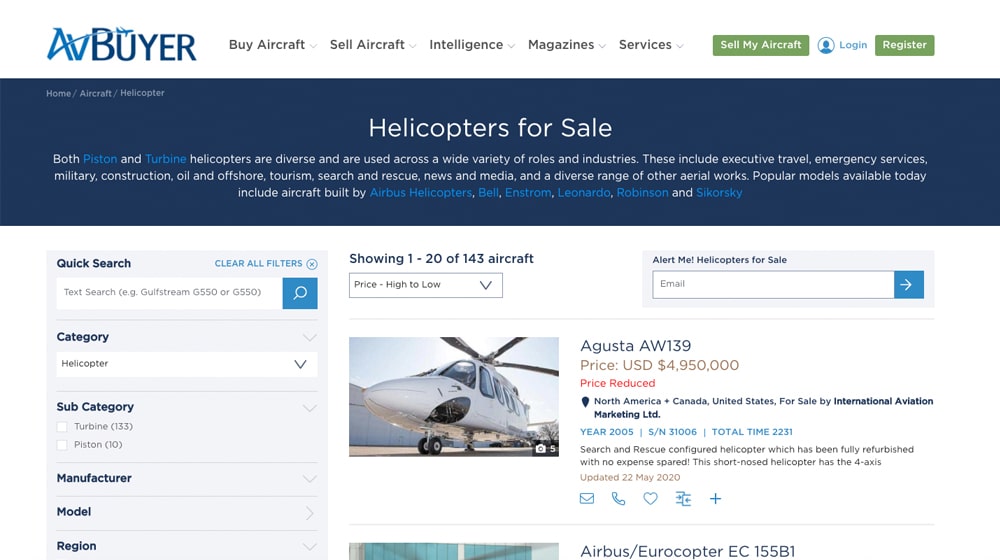
And you know what? Those rich people, the business owners buying B2B services for millions of dollars, they read the internet too. Business owners read blogs, and while they might spend more of their time reading Forbes than they do my blog, they still read and are influenced by the content they see.
Search engines – Google included – have become so necessary to our society that everyone, top to bottom, uses them. Sure, maybe Jeff Bezos doesn't directly use Google, but you know what? He gets his information from advisors, and those advisors get their information from Google and blogs.
Businesses with high-value products for sale benefit from blogs because the people who make the decisions to buy their products find them through blogs.
Expanded Ideas of Content Marketing
None of this means that a small, local business can't benefit from blogging. Every business can benefit - some can just benefit more than others. Blogging doesn't have to be unlimited. Local businesses run blogs targeting their local communities, and those blogs work too. They might not be able to pull in 32,000 new customers, but they can pull in some. More importantly, they offer an avenue for a company to judge interest outside of their areas. A lawn care company can consider expanding to a nearby market that shows interest in their posts. A company selling handmade products can start shipping more than just across town when people who find them online decide to make an order.
There's also the fact that the internet is about more than just blogging, now. It's about content marketing. There are businesses out there that run entirely on Facebook, with embedded storefronts and Facebook ads, and no need for anything beyond it.
Here's an example I like to give. There's a small antique store in Edmonton, Alberta. It's a family-owned business that goes out to buy antiques from the surrounding areas, reselling items for a profit in their storefront. They don't have a web store or a blog. They have an Instagram page and a Facebook page, but neither has a storefront on it. They sell through the phone and in-store, and sometimes through an auction.
Yet, they're recognized around the globe because of one thing: YouTube. The store is Curiosity Inc., and its popular YouTube channel has attracted a huge audience that has greatly benefitted their company. Collectors of odds and ends from around the world buy items they see on the YouTube videos, often before the next video even comes out. That might not sound impressive until you realize that they publish a new video nearly every day.
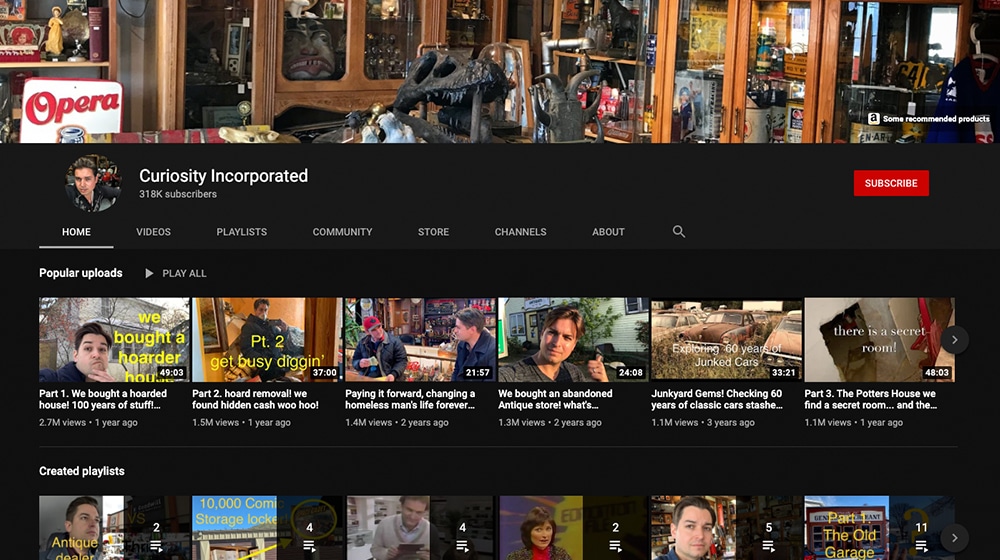
Would this store benefit from blogging? Almost certainly. They could create a blog with information about different kinds of antiques and collectibles, draw in interest from people who like those items or those hobbies, grow an email list with that extra traffic stream, and build an even greater reputation.
Do they need to? Not necessarily. The kinds of knowledge necessary to write those blog posts come from the owner, and the owner is busy enough as it is. A blog wouldn't be able to fully portray their authority, interest, and knowledge without direct input. But videos? Videos can be shot at the moment and knowledge is displayed immediately and published to build interest. It's a perfect scenario.
Modern content marketing is about more than just blogging. Does your business need a blog? It depends on your business, your competition, and your budget. Perhaps you would benefit more from a video channel lead by a knowledgeable and charismatic owner. Maybe you would benefit from an image-heavy feed on Instagram instead. You never know unless you try.
The Truth of Blogging
The truth of the entire blogging industry is that it's driven by people like me, who want to convince you that you need a blog because we are in the blogging industry. It just so happens that blogging is arguably the best way to promote your business in the long term. Try it for yourself - Google for ways to promote a website and see what shows up. Every one of those lists mentions blogging.
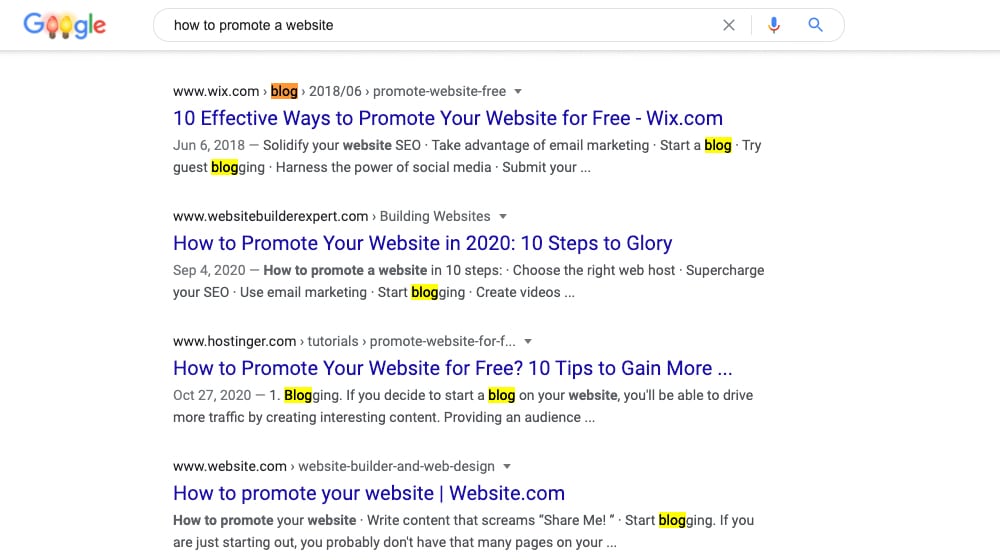
Will your business collapse without a blog? No, of course not. Thousands of businesses thrive without a website, let alone a blog, though it's getting harder and harder. Younger generations are used to looking up businesses to visit rather than walking into places sight unseen. Then again, think about the kinds of businesses they look up. Does a local restaurant need a blog? Not really. They need a website and a page with a menu, but a blog? It doesn't add anything.
- Some businesses are well-positioned to make use of blogging as a growth tool. They can use a blog to build awareness, grow a customer list, and educate users about their products. They can ship and fulfill anywhere in the world, or anywhere in the country, so the massive, infinite audience of the internet allows them to reach more and more customers.
- Some businesses just don't have the same position. Some of them can use blogs – or other forms of content marketing – to grow to a point where they can make the transition to a wider reach. A business that ships only nationally might, for example, see enough interest that international shipping becomes an option worth pursuing.
- Some businesses might not feel like they can benefit from blogging, and sure, they can't benefit from reaching people outside of their city because they can't service people outside of their city. Still, they can benefit from reaching the people inside their city. It's just a different kind of content marketing.
- Some businesses, of course, don't benefit from blogging at all. Is yours one of them? I doubt it, but if you want to talk about it, feel free to give me a call.
How do you feel about blogging? Have you given it a try, or do you plan to? Feel free to ask me questions in the comments section, I respond to each and every comment!










March 02, 2021
Hey James. I'm into the real estate industry and I am having a hard time thinking if it's necessary for me to put up a blog. I want to know your expert opinion on this.
March 04, 2021
Hi Chris! It depends heavily on the competition in your industry and the amount of searches in your area.
If few of your local competitors are providing valuable content, I think it is definitely worth doing.
The customer value for real estate leads is much higher than leads for an eCommerce business, so I can see how it would be easy to justify the investment.
I know a handful of realtors who blog with great success.
July 28, 2021
I am selling men's vitamins on Shopify and I have a Shopif blog. Do you think it's worth to put up a blog here or better in WP?
August 03, 2021
Hi Rodney,
I wrote an article on this subject here, if you're interested:
In short, I recommend using the native Shopify blog, even with its flaws.
I recently reviewed a new platform called DropInBlog that improves the default Shopify blog, which may be an option for you:
December 20, 2021
I am in the finance industry and I'd like to seek your expertise if blogging is something that I should try. Thanks
December 22, 2021
Hi John! I dropped you an email.